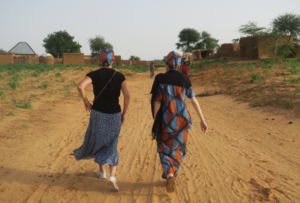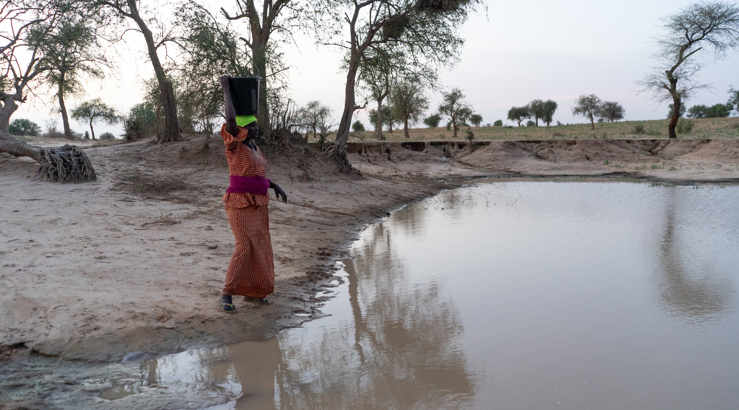Since 2017 Dr. Kathleen Neuzil has been project director for the Typhoid Vaccine Acceleration Consortium, a strategic partnership led by the University of Maryland School of Medicine Center of Vaccine Development & Global Health. Dr. Neuzil is a globally recognized vaccinologist with deep expertise in epidemiology, international field trials, and vaccine policy. This week she was awarded the University of Maryland, Baltimore, “Researcher of the Year” Founders Week award. This award recognizes Dr. Neuzil’s stalwart dedication to the vaccine field, including typhoid conjugate vaccines. On the heels of Global Handwashing Day and the Founders Week award ceremony we connected with Dr. Neuzil about typhoid, typhoid conjugate vaccines (TCV), and water, sanitation, and hygiene (WASH). Her insights below highlight the importance of considering WASH alongside vaccines to have the most impact on enteric disease prevention and control.
Q: The lack of access to safe water and improved sanitation has a direct impact on typhoid burden in LMICs. Can you say more about the role of WASH infrastructure in relation to typhoid prevention and control?
A: We know how to eliminate typhoid – with improved WASH infrastructure. We accomplished typhoid elimination in high income countries decades ago, but unfortunately have not had the political will and resources to eliminate typhoid in low resource settings. Improvements and maintenance of WASH infrastructure won’t occur immediately, and we can’t have children suffer with typhoid fever in the meantime. This highlights the importance of TCVs to prevent typhoid fever and its complications as an adjunct to those efforts.
Q: We’ve seen several water-related emergencies lately – floods in Pakistan and Malawi among them – how does this extreme weather impact access to safe water and the potential for increased typhoid transmission? What is the role of TCV in these contexts?
A: Unfortunately, climate change and extreme weather events have increased water-borne outbreaks of typhoid fever and cholera. Flooding leads to contamination of drinking-water facilities, and these extreme weather events expose the inadequacy of WASH infrastructure in many settings. TCV has been used to effectively respond to outbreaks of typhoid fever, for example in Pakistan and Zimbabwe. As it is difficult to respond to outbreak situations, the preferred approach is to have preventive TCV campaigns in areas that are endemic for typhoid so that children are protected before such an extreme event occurs. A single dose of TCV is effective and durable for at least four years. TCVs can be administered with other routine childhood vaccines – and with support from Gavi, the Vaccine Alliance – making them a logistically feasible and cost-effective way to prevent typhoid fever.

Q: There is a lot of urgency for TCV right now, particularly considering drug-resistance and climate change. Why are we not seeing the same urgency for WASH?
A: WASH is the ultimate solution to eliminate water-borne diseases – and we should be seeing the same urgency for WASH that we are seeing for vaccines. Unfortunately, the improvement and sustainability of WASH infrastructure requires longer-term and more costly investments. In addition, with political instability and population movement it can sometimes be difficult to predict where populations may settle, and where outbreaks may occur. Likewise, reaching remote areas with WASH infrastructure and maintaining that infrastructure is challenging.
Q: How do we speak to governments about the importance of WASH and vaccines? What do the data tell us about an integrated approach?
A: It’s not an either-or scenario. We need both. An integrated approach is the optimal solution – for protection in the short-term and elimination in the long-term. Several studies have shown that the two together have additive benefits in reducing typhoid fever in populations.
Cover photo credit: Hopital de la SIM in Galmi, Niger.



